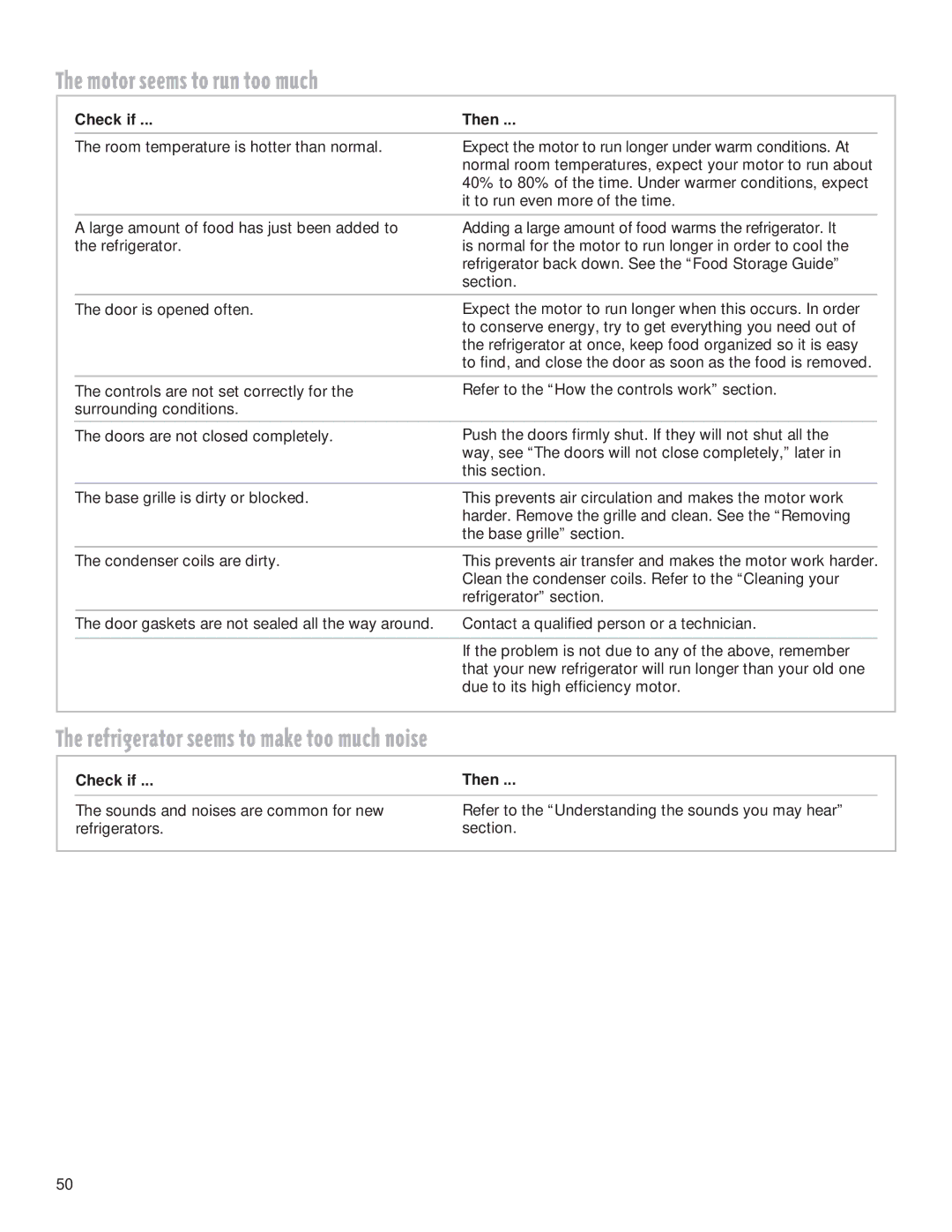
The motor seems to run too much
Check if ... | Then ... |
The room temperature is hotter than normal.
Expect the motor to run longer under warm conditions. At normal room temperatures, expect your motor to run about 40% to 80% of the time. Under warmer conditions, expect it to run even more of the time.
A large amount of food has just been added to | Adding a large amount of food warms the refrigerator. It |
the refrigerator. | is normal for the motor to run longer in order to cool the |
| refrigerator back down. See the “Food Storage Guide” |
| section. |
|
|
The door is opened often. | Expect the motor to run longer when this occurs. In order |
| to conserve energy, try to get everything you need out of |
| the refrigerator at once, keep food organized so it is easy |
| to find, and close the door as soon as the food is removed. |
|
|
The controls are not set correctly for the surrounding conditions.
Refer to the “How the controls work” section.
The doors are not closed completely. | Push the doors firmly shut. If they will not shut all the |
| way, see “The doors will not close completely,” later in |
| this section. |
|
|
The base grille is dirty or blocked. | This prevents air circulation and makes the motor work |
| harder. Remove the grille and clean. See the “Removing |
| the base grille” section. |
|
|
The condenser coils are dirty. | This prevents air transfer and makes the motor work harder. |
| Clean the condenser coils. Refer to the “Cleaning your |
| refrigerator” section. |
|
|
The door gaskets are not sealed all the way around. | Contact a qualified person or a technician. |
|
|
| If the problem is not due to any of the above, remember |
| that your new refrigerator will run longer than your old one |
| due to its high efficiency motor. |
The refrigerator seems to make too much noise
Check if ... | Then ... |
|
|
The sounds and noises are common for new refrigerators.
Refer to the “Understanding the sounds you may hear” section.
50
